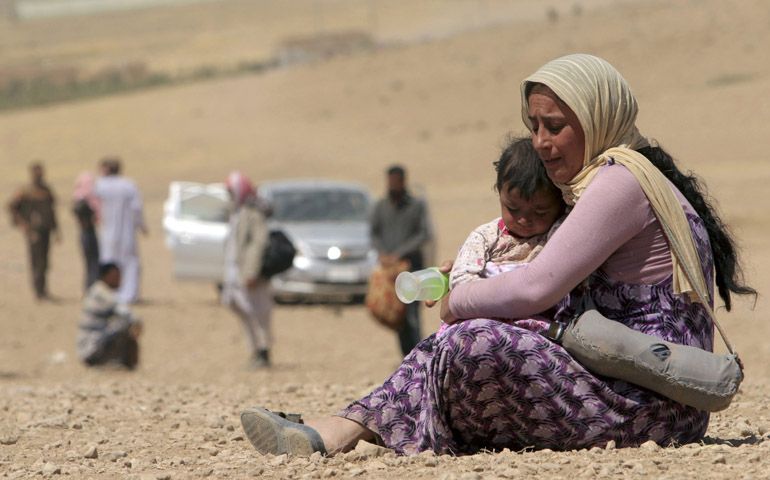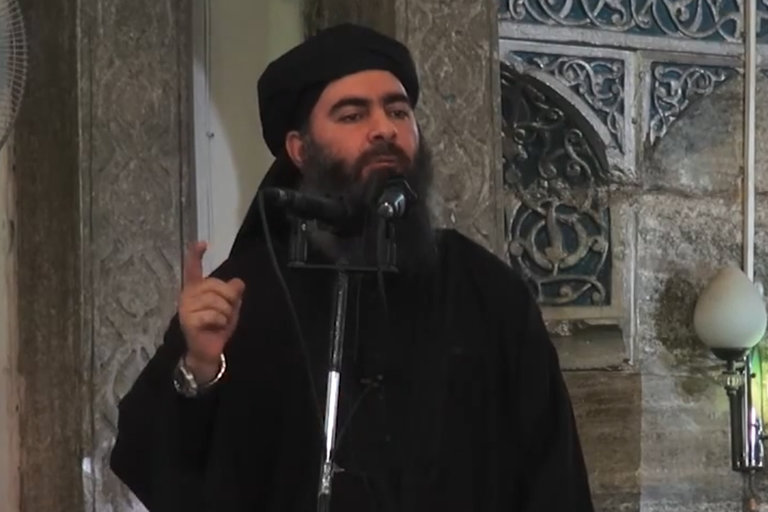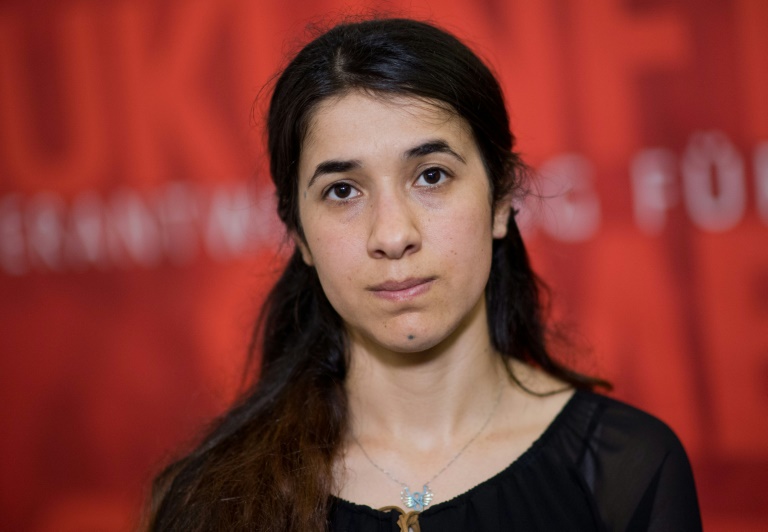When Arya, a young Yazidi girl, returned home after being kidnapped by ISIS, she could no longer speak the language of her people.
After spending years living in ISIS captivity, she was sold and resold as a domestic worker, eventually finding her way back to the Kurdish Region of Iraq – an area Yazidis have called home for millennia.
Sometime after, Arya, whose real name has been changed to protect her privacy, was reunited with her father. He was saddened to find that while his daughter was gone, her identity had been stolen from her. She had been forcibly converted to Islam and taught to hate her own people – even her own father – who she scornfully called a “non-believer.”
With a broken heart and an open mind, Arya’s father turned to international Non-Government Organizations for help. Through counseling and psychological therapy, she has begun to recover from the trauma inflicted on her by ISIS, rebuilding a bond with her father and slowly relearning her Kurmanji Kurdish language and Yazidi culture.
“They are in a much, much better place now,” Kani Areef, a Program Manager at the SEED Foundation, a nonprofit organization that provides mental health services and humanitarian resources for people in Iraqi Kurdistan, told The Globe Post.
To Areef, Arya’s story is an example of the positive impact that professional mental health support and social work can have on the victims of ISIS. And while much of the NGO sector in Iraq remains focused on providing much-needed material aid and medical care, SEED is one of only a handful of organizations working to address the psychological wounds of those who suffered at the hands of ISIS.
ISIS Genocide
Arya was one of thousands of Yazidis who were captured when the group swept through the Mount Sinjar region of Iraqi Kurdistan in August 2014.
Many of the older girls and women were held as sex slaves, while thousands of men were brutally executed en masse, prompting the United Nations to designate the ISIS campaign as a genocide.

About a third of the Yazidis who were captured remain missing and mass graves continue to be unearthed.
For those who have returned, psychological and social support is stretched thin.
“There’s a huge gap unfortunately in Iraq in general across the country in expertise in mental health services and in social work,” Ailsa McVey, the Director of Programs at Seed, told The Globe Post. “The gap is even bigger unfortunately when it comes to children.”
‘Ticking Time Bomb’
The potential consequences of the lack of professional psychological services across Iraq are not strictly humanitarian.
Among those receiving counseling from SEED are boys who were radicalized and trained to be child soldiers while in ISIS captivity. While they are widely viewed as victims, both by international workers and within their communities, there are concerns they could ultimately become dangerous without proper attention and care.
“Some people say it’s like a ticking time bomb, you don’t know when it will blow,” Areef said. “In the long term, of course, if these children are not treated they could be a security threat to the country, to the region, to the globe.”
The experiences of the boys while in ISIS captivity varied depending on their age and other factors. Most were indoctrinated in Jihadist and Sharia ideology and some were given military training. Others were themselves compelled to fight and may have experienced psychological trauma associated with combat.
Many of the boys have issues with anger and often display aggressive behavior towards their family and other members of their community.
Recovery
Instead of institutionalizing them – which the SEED workers say would increase the stigma around the boys and would likely be counterproductive – a mobile team of social workers treats the boys in their own homes.
“We don’t disconnect them from their own environment because part of our objective is to reintegrate them with their family and society,” Yusra Kailani, a Clinical Advisor at the SEED organization, told The Globe Post.

Approaches to treating the boys vary on a case by case basis, but Kailani said it’s often done in a group setting with the entire family. Much of the work is centered around anger management, and the boys are often asked to do free drawing as a way of expressing their feelings.
Kailani said some of the boys still idolize members of ISIS and draw pictures of them.
“The clinical approach in a situation like that is to listen to the child and create a safe space where the child can open up,” Kailani said.
“We don’t have an approach where we say, ‘he’s a bad guy’ … because the child has a relationship with this man … We can’t delete this experience.”
Instead, they try to refocus the boys’ energy towards school, socializing and other activities.
While the challenges can be daunting and the stakes are high, Kailani and her colleagues were adamant that these children are not a lost cause.
“Seeing a child who was very aggressive towards the family and thinking all of the time of ISIS and didn’t respect his family, seeing him change into someone who’s very helpful, very supportive and playing with other children and going back to school and socializing, for me it’s very inspiring to see how our work could really have an impact,” she said.
More on the Subject
Yezidis, a religious minority group, have been persecuted for centuries in Iraq and more recently have experienced genocide at the hands of the so-called Islamic State.
In August, during an event at the Hudson Institute in Washington, D.C., Executive Director Pari Ibrahim of the Free Yezidi Foundation said, “If there’s no justice, Yezidis will get revenge… I’ll tell you right now: Yezidis will commit murders. Because, if they have to live with the people who raped their daughters, who killed their fathers, who got away with these crimes, yes, justice is absolutely essential.”
Ibrahim’s foundation, an organization based in the Netherlands, works in Iraq and does advocacy work around the world for the religious minority group. She sat down with The Globe Post to discuss the subject further.


















